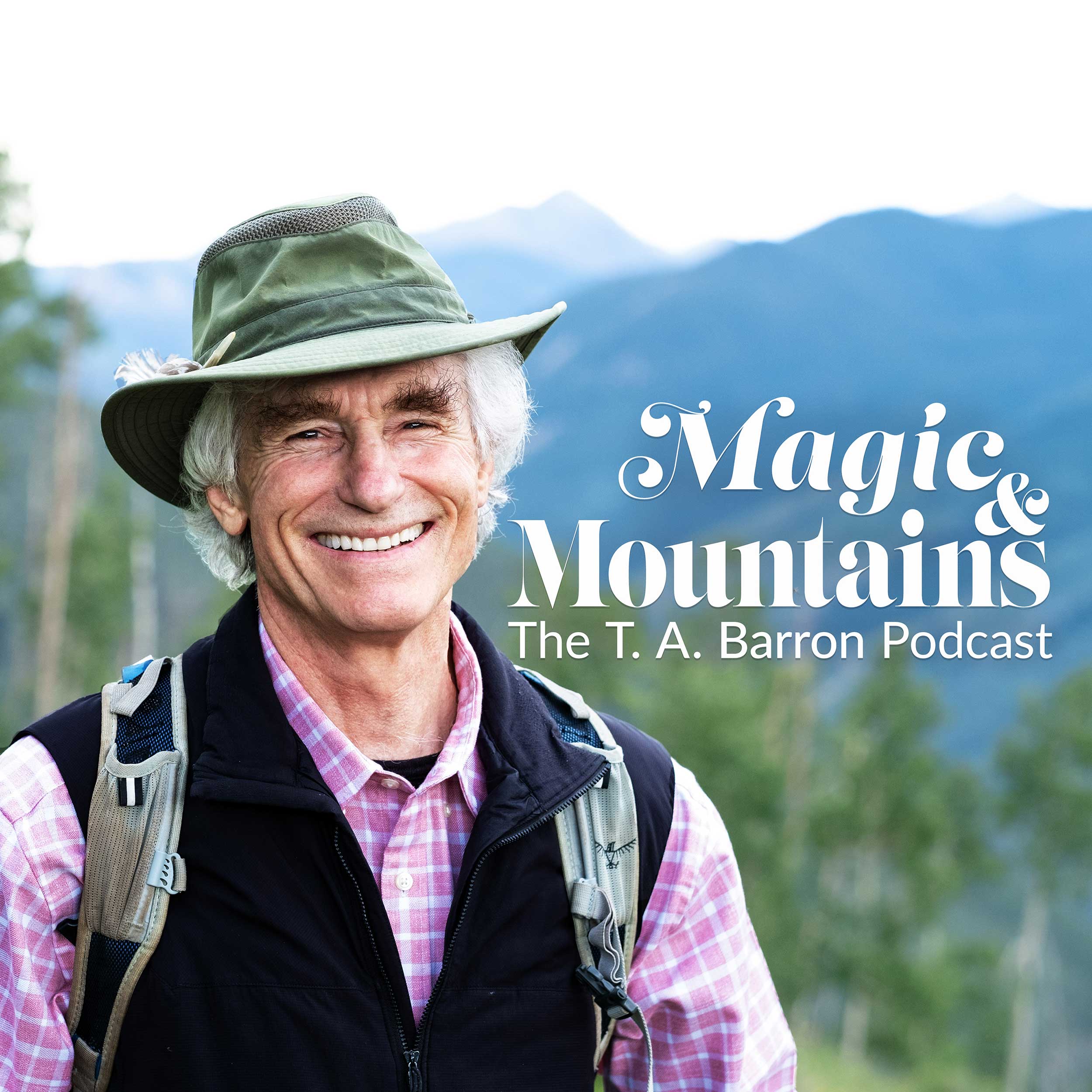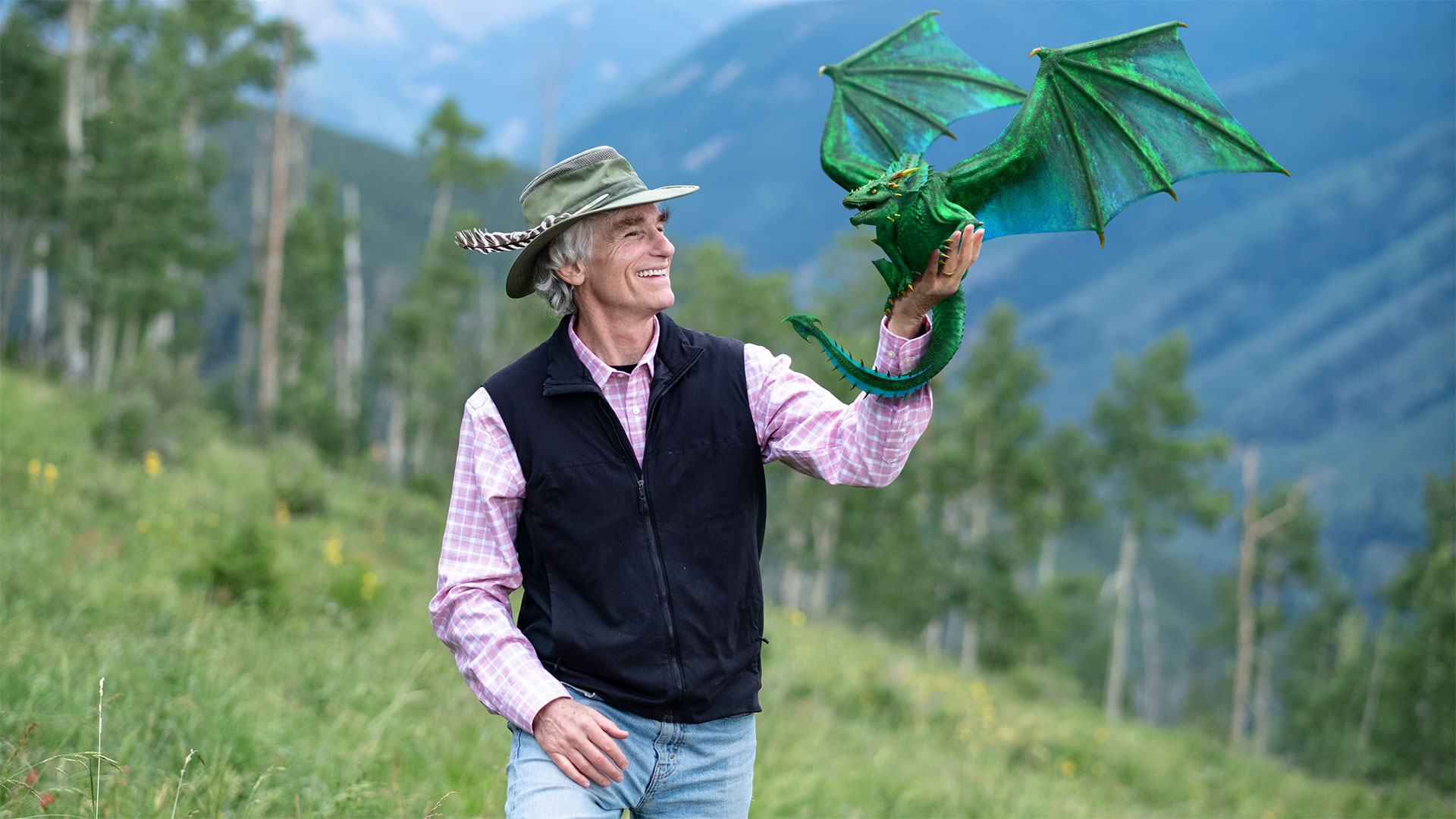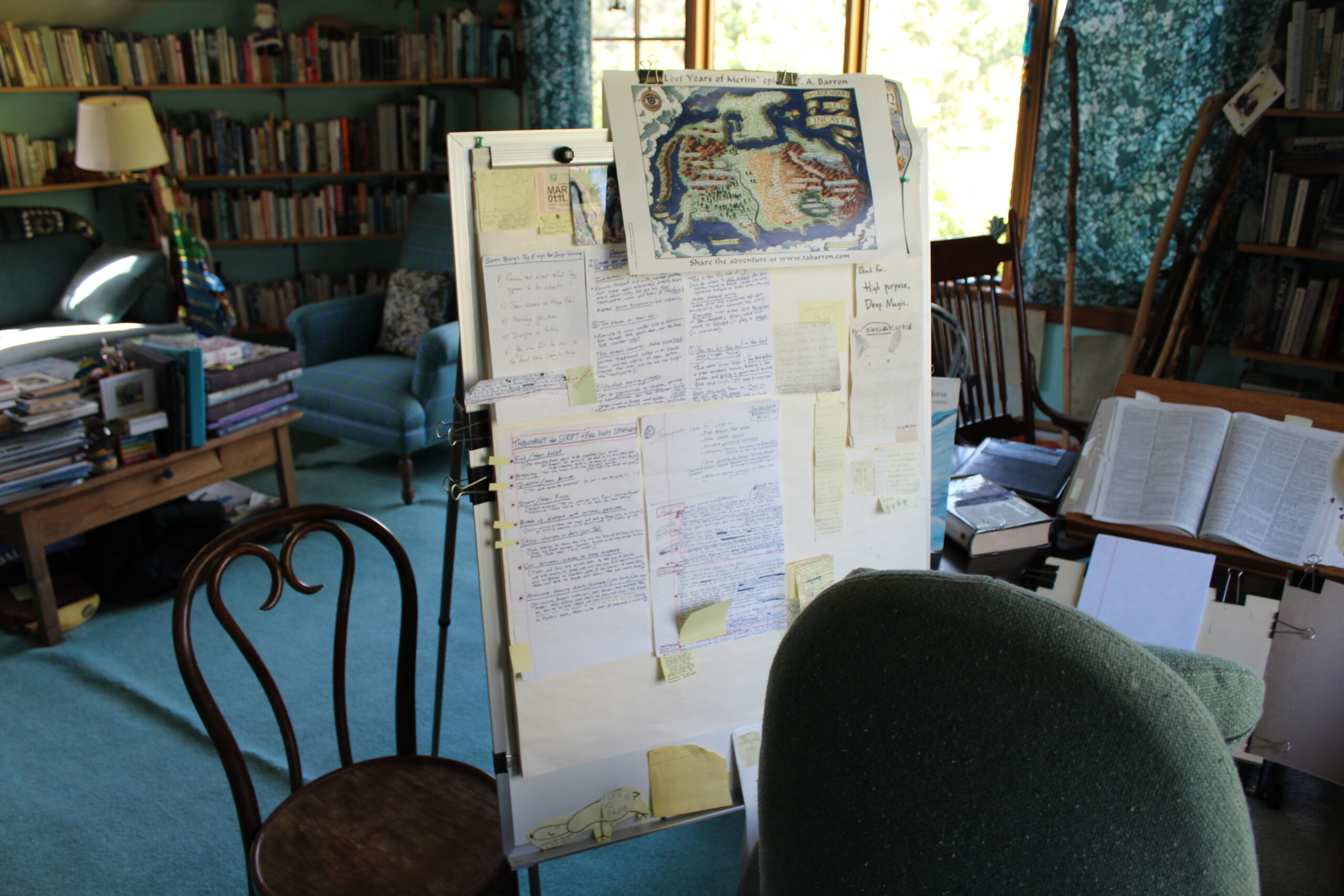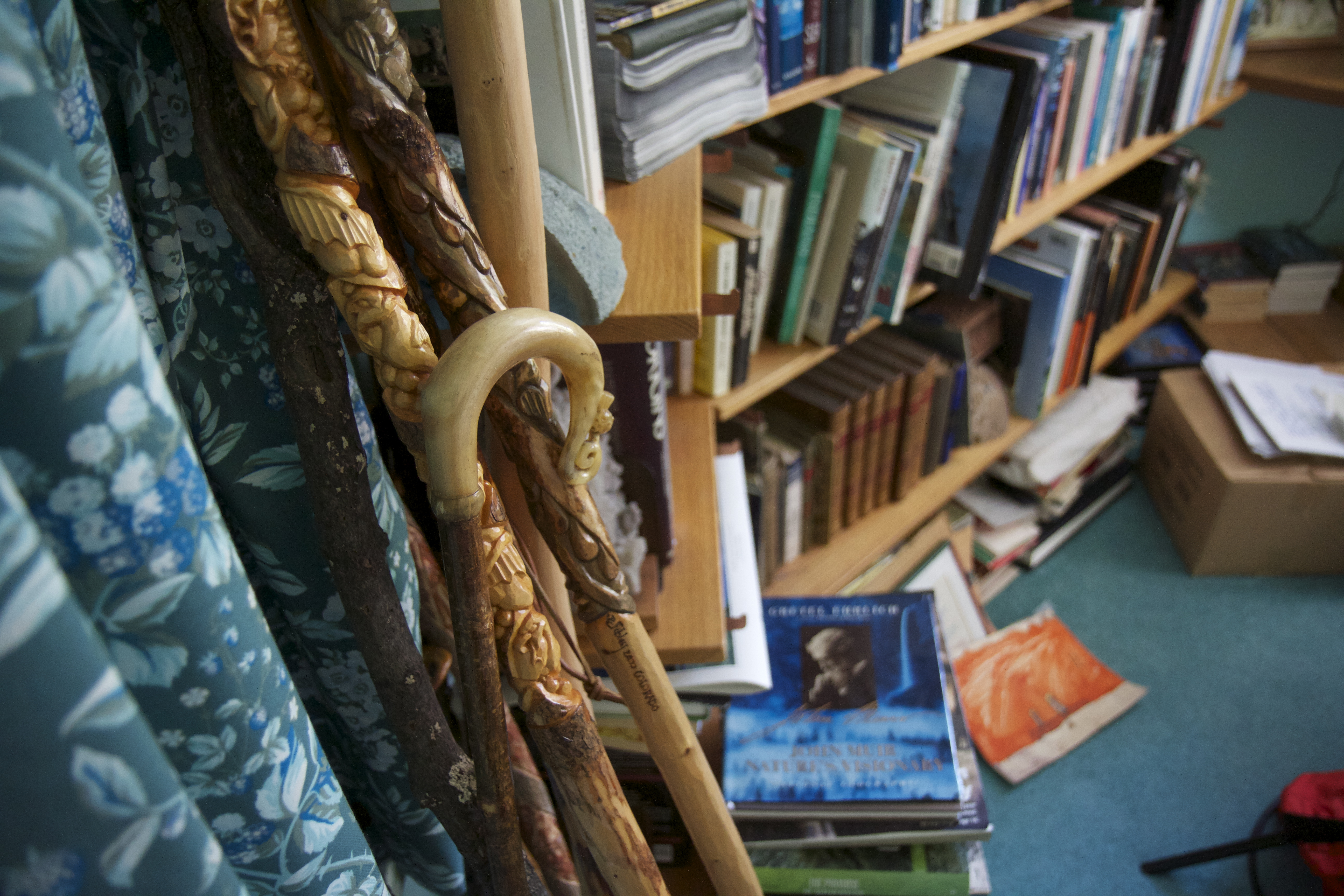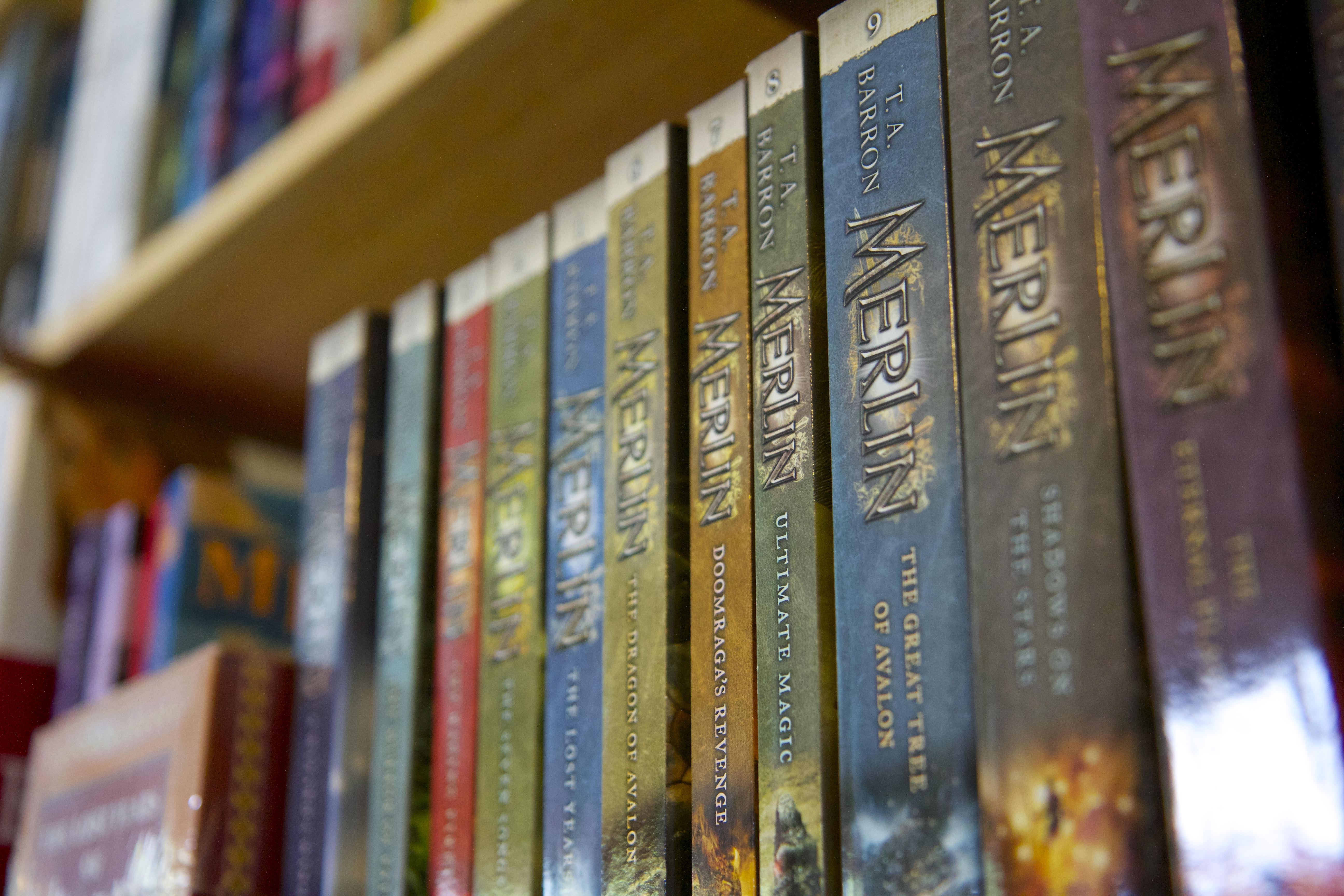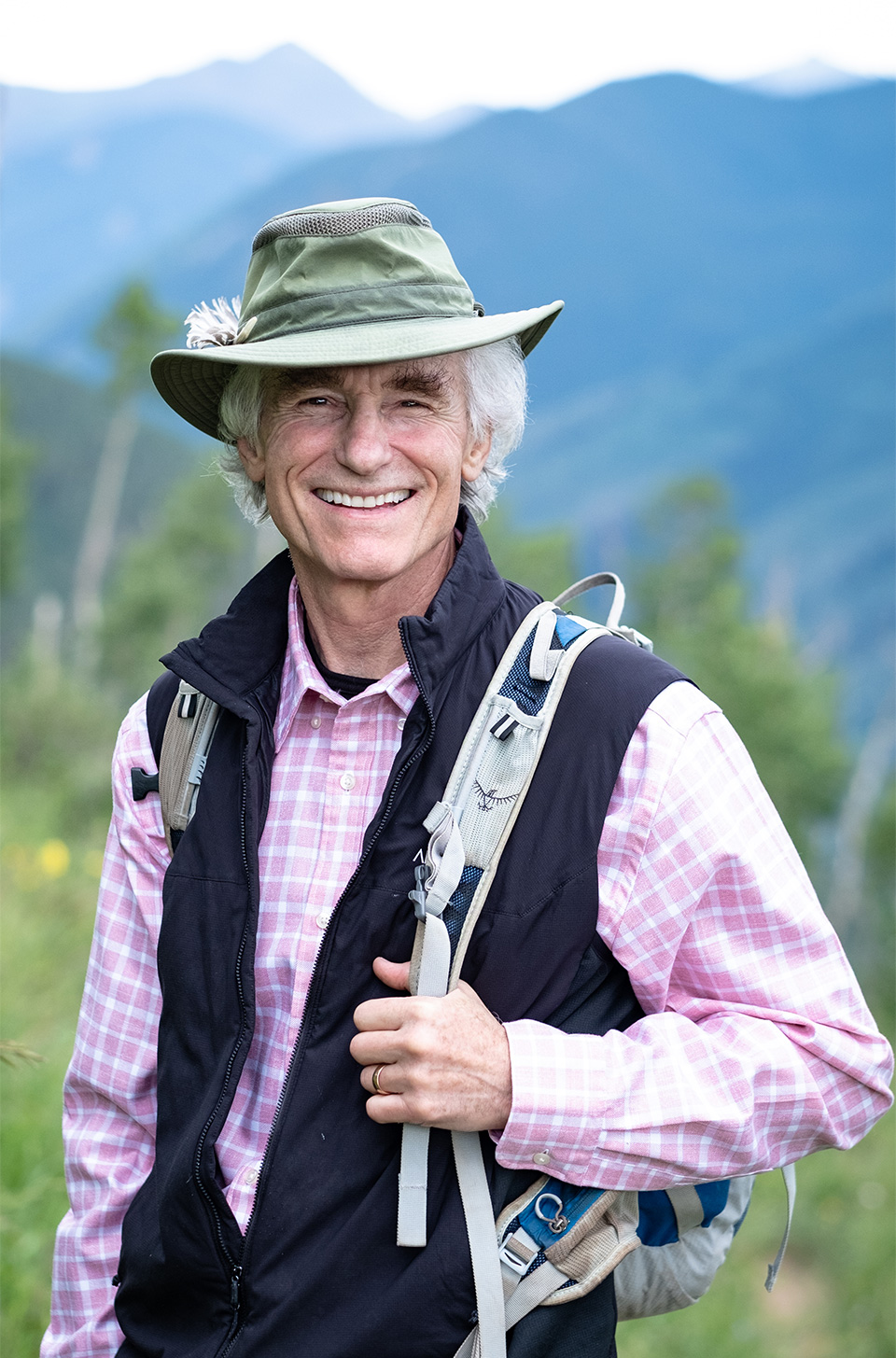
WELCOME TO MY WORLDS!
Writing is both the most joyous—and most agonizing—labor I know. And it is by far the best way to travel—in our world or any other. Ever since my youth on a ranch in Colorado, I’ve felt passionate about nature…and about writing. (I even published my own magazine when I was a kid, called The Idiot’s Odyssey, which sold about five copies an issue—including the ones bought by my parents.) I kept writing during my college years at Princeton, and during my time as a Rhodes Scholar. (While at Oxford, I confess, I studied mostly the hiking trails of Scotland.) During those years abroad, I composed stories and poems while hiking in the Scottish highlands; while sitting beneath the boughs of an English oak I called Merlin’s Tree; while backpacking through Asia, Africa, and the Arctic; and while participating in a traditional roof thatching in Japan. Even during my years helping to manage a fast-growing business in New York City, my writing continued. In all those years, I often rose before dawn just to write.
Finally, I followed my dream to write full time. In 1990, I moved back to Colorado and started writing in the attic of my home, with the help of my wife and our five young children. So I still often get up before dawn to write—but now I can keep going after breakfast.
Where it all began…
T. A. Barron grew up in Colorado, attended Princeton University, then traveled widely as a Rhodes Scholar. Though he’d long dreamed of becoming a writer, his first novel was overwhelmingly rejected by publishers. He joined a business in New York and eventually became president and chief operating officer. Despite being very busy, he continued to rise every day before dawn to write at the kitchen table. Determined to try again to be a storyteller, he surprised his business partners in 1990 and moved back to Colorado with his wife Currie to pursue writing and conservation.
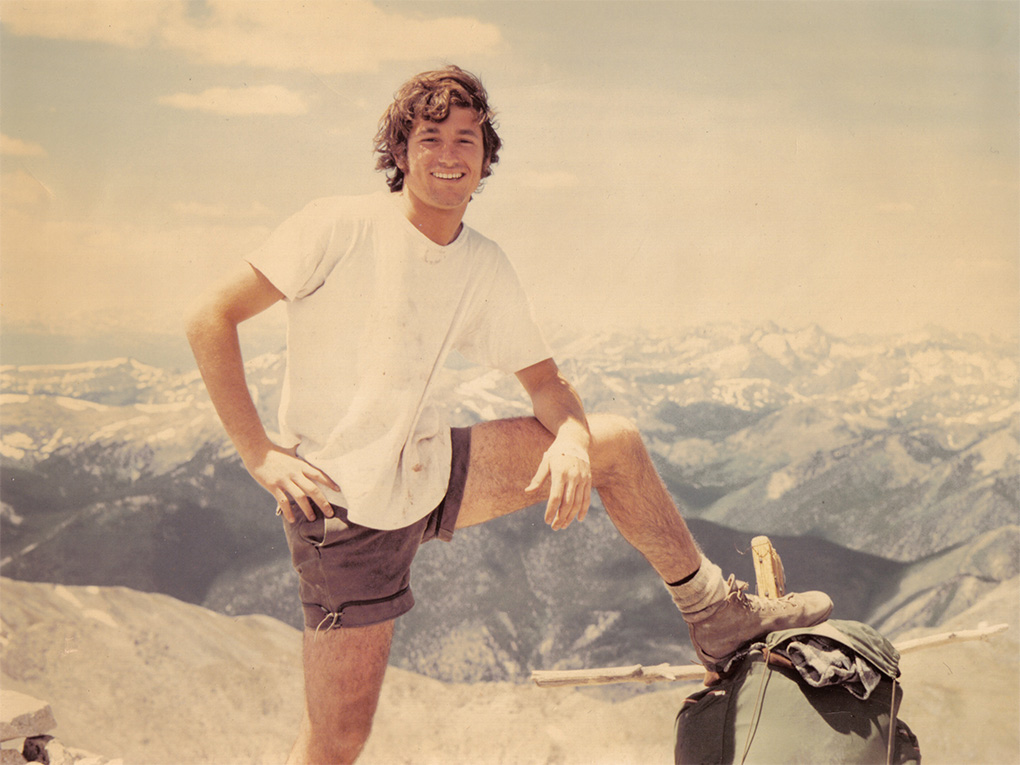
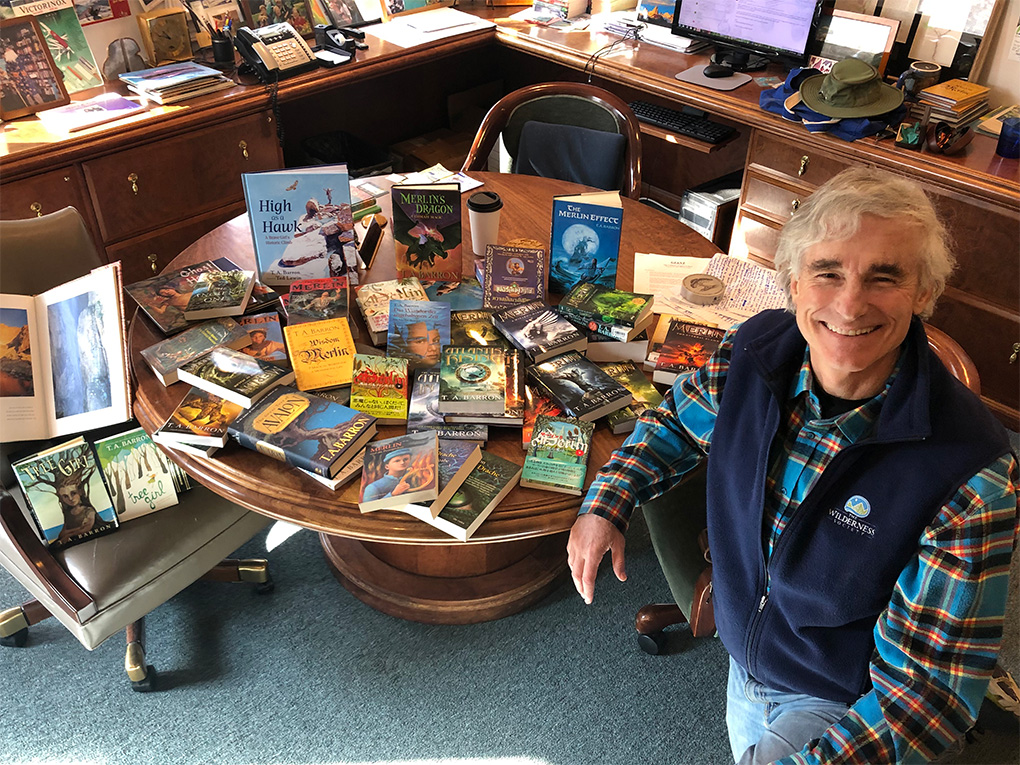
Live your life as a story…
Today, he is the award-winning author of more than 30 highly acclaimed books, many of which are international bestsellers. He has won the de Grummond Medallion for lifetime contribution to literature for children and young adults, the Nautilus Award for books that inspire a better world, and many other awards. His books include the Merlin Saga (now being developed into a feature film by Disney), The Great Tree of Avalon (a New York Times bestselling series), The Ancient One (the tale of a brave girl and a magical tree), and The Hero’s Trail (nonfiction stories about courageous kids). Jane Goodall has called his upcoming title, Naming Nature, “a glorious celebration of nature’s beauty, a love poem to language, and a heartfelt plea to save the environment for all living creatures.”
There’s a hero in us all…
In addition to writing and speaking and hosting his podcast, Magic & Mountains, T. A. Barron has helped to create several programs to support young leaders around the world, including the Patagonia program for Rhodes Scholars, the Boundless conservation fellowships at World Wildlife Fund, and the Gloria Barron Prize for Young Heroes. He recently produced a documentary film, Dream Big, profiling seven inspiring winners of the Barron Prize.

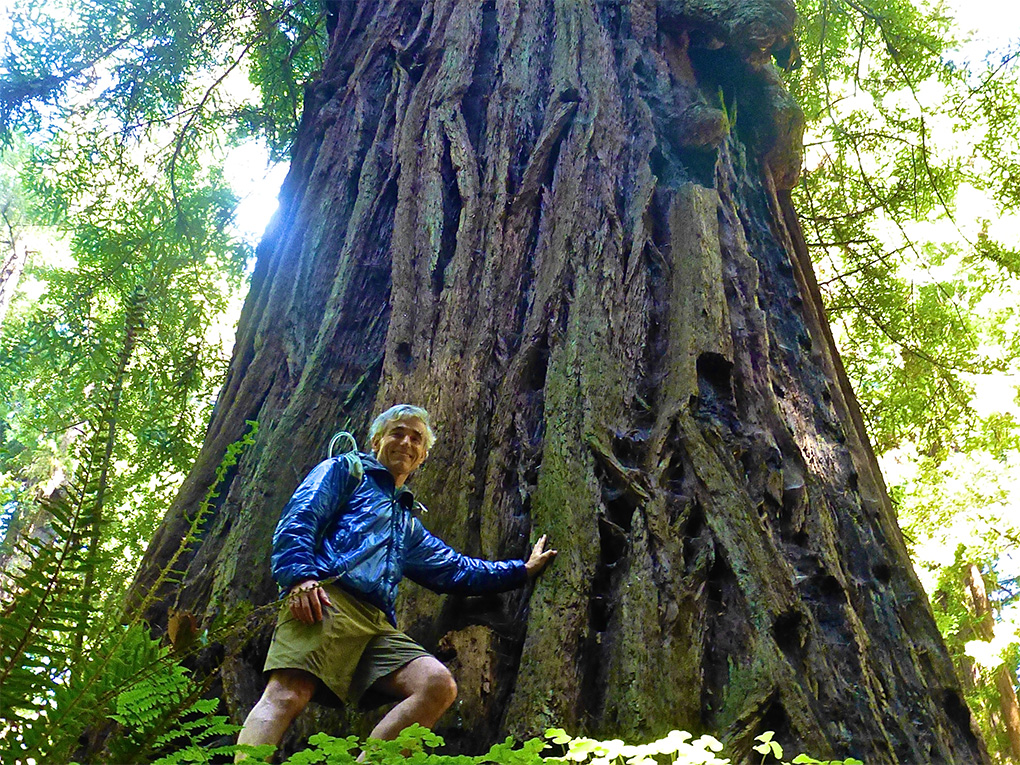
Nature as inspiration…
He serves on many environmental and educational boards, including Princeton University, where he helped to create the High Meadows Environmental Institute, and The Wilderness Society, which recently honored him with its highest award for conservation work. Most of all, he loves hiking, camping, and skiing with his family in Colorado.
Personal Awards
- The de Grummond Medallion – awarded for “lifetime contribution to the field of children’s and young adult literature”
- Robert Marshall Award – “the highest award given by The Wilderness Society to a citizen who advances the cause of American conservation”
- Redwoods Muse Award – given by California’s Save the Redwoods League for “inspiring people of all ages and descriptions to protect the world’s tallest trees”
- Rhodes Scholars George Parkin Award – for “exceptional volunteer service to the Rhodes Scholarships”
In addition, T. A. Barron’s books have won many awards. For a current list, see the pages on individual books.
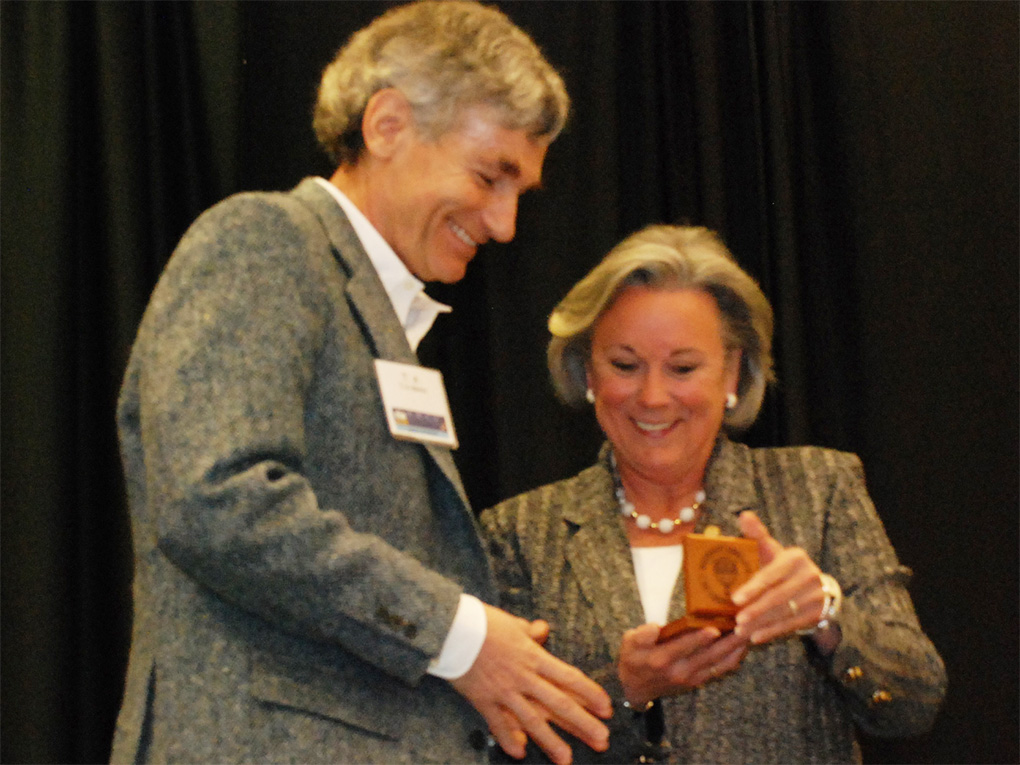
PRESS KIT
Download Individual Documents:
Click an image to download a high-res version.
TAB QUICK FACTS
Here are 10 fun facts about me! For even more, check out the FAQ below.
- I’m left-handed and always write the first draft of my books with a blue felt tip pen. Writing by hand helps me to hear all the characters’ voices and also the poetry of language. (See samples of my handwriting!)
- Two loving, playful golden retrievers (named Banjo and Bella) join all our family walks… and nobody has more fun than they do!
- Nature is my greatest friend, teacher, and healer. As well as my enduring inspiration. And I’ve been lucky enough to experience nature’s wonders on every continent (including Antarctica).
- What are the most valuable things I’ve learned in life? Live fully and love well while we’re alive. Create a life around our passions and dreams. Fill our hearts with gratitude and grace. And remember to be kind.
- I read everything that interests me… which is quite a lot! Books on science, nature, love, mythology, hope, music, philosophy, poetry, and history are right now in my reading pile.
- I play guitar and am learning marimba. My family loves to sit around the campfire singing together on camping trips. (And fortunately they sing a lot better than I do.)
- My writing room upstairs in our home is my favorite place to create. It feels like a mix of Merlin’s crystal cave; an art gallery with fan art from around the world; an outdoor equipment center with backpacks and tents; and, of course, a library full of books.
- The creative process is unstoppable. So I write all the time, wherever I am. Once I was dogsledding in Alaska when it was 40 degrees below zero, and suddenly I had a good idea, so I stopped my sled in the middle of a frozen lake to write it down!
- Poems are words and music combined. I love to read them and also to write them. (You may have noticed how many ballads and poems I slip into my novels, such as The Great Tree of Avalon trilogy or The Merlin Effect.) My favorite poem of all time is William Wordsworth’s hauntingly beautiful “Lines Written Above Tintern Abbey.”
- I have a podcast called Magic & Mountains. Past episodes include interviews with inspiring folks like Jane Goodall and Isabel Allende, my thoughts on my most favorite quote (it’s from Buddha), and some of the truly crazy and funny things that have happened on my book tours.
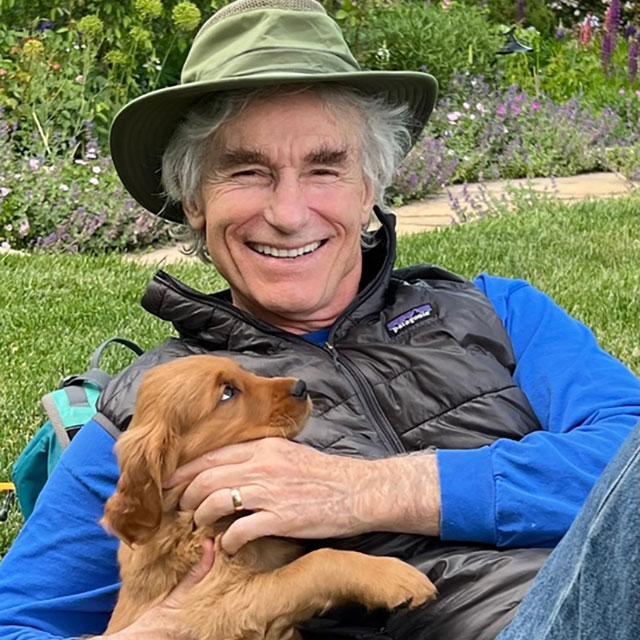

Q & A WITH TAB
Where do you get your ideas?
My best ideas come from life itself. Especially being out in nature, observing the intricate wonders of wildflower meadows or rambling rivers, opens all my senses: I smell, hear, taste, touch, and see many things that inspire me to feel fully alive — and also to write. It’s the same when I’m with my kids. They unfailingly open my senses and make me more aware. Ideas also come from reading an interesting book, or thinking about the problems of the world today. Ultimately, if you notice what’s around you, and really take it in, you have a limitless source of material. Then just add a pinch of imagination and anything — literally anything — is possible.
What is your current writing project?
Happily, I’ve just finished writing the final book in the Atlantis Saga, Atlantis Lost. It’s a great feeling to have completed this tale! And like all my books, it’s an environmental fable that raises questions about how we can live sustainably on our beautiful but beleaguered planet – which is, like Atlantis, an island.
The first book, Atlantis Rising, revealed how the mythic isle of Atlantis was created — what people were central to its birth, what was the real source of danger, and why this magical place had such power and inspiration. The book also reveals the seeds of the island’s ultimate destruction. And it’s also a love story between a young man, Promi, and a young woman, Atlanta, whose great courage is essential to the birth of this magical world.
When you read Atlantis Lost…you will indeed experience the destruction of Atlantis. But you will also find out how Atlantis may still be here with us today. More than that, I cannot say!
Beyond that…I’m doing whatever I can to help the terrific team of people at Disney who are making a movie of the Merlin Saga, the epic tale of young Merlin’s adventures.
What did you learn in writing about Merlin?
I learned about the wizard—the hero—that lives inside us all. That’s quite an inspiring thought that Merlin gave me. I also learned about what a truly remarkable character Merlin is, full of contrast and depth and wisdom. There’s a metaphor at the heart of all of the books from the Merlin Saga. Just like the young Merlin, all of us are washed ashore, half-drowned, at some point in our lives. All of us have hidden struggles — and hidden potential. And all of us, like the greatest wizard of all, have magic within us — and the ability to reach for the stars.
Are you going to write any more books about Merlin?
If anyone had ever told me, way back when it all began with a dream about a strange boy who washed ashore, that the journey would lead to all these adventures, plus so many international editions, tributes, and excitement about a movie, I wouldn’t have believed it! (Then again, who would believe that that young boy would become the greatest wizard of all time? Or that Shim could endure so many obstacles and ultimately triumph as a true giant? Or that a bizarre creature as tiny as Basil would become Avalon’s most powerful dragon and Merlin’s best friend?)
So it’s been quite a ride. The best experience any writer could ask for. And Merlin, whose greatest wisdom came from nature, continues to light up my life and teach me valuable ideas. He is my hero in the deepest mythical sense of that word.
Will I write about him again? The answer is … who knows? Only the wizard himself can say for sure. I’m not ruling anything out. But right now I know there are other stories in my writer’s cauldron, stories I’d like to taste and maybe serve up to readers. Whatever happens next, I’m sure it will be enriched by Merlin’s magic.
Why do you write quest novels and fantasy? Why not realistic fiction or historical fiction?
I write books I would like to read. That means each story must have a character, a relationship, a place, a dilemma, and an idea that I care about. A lot. I like a story where an individual must deal with personal issues as well as overarching issues. The mythic quest — call it fantasy if you prefer — allows me to incorporate all of these qualities.
In addition, the mythic quest gives me a great opportunity to wrestle with some of life’s biggest questions in the context of a good old-fashioned page-turner. For example, telling the story of Merlin’s lost years allows me to explore the idea that all of us, whatever our backgrounds, have a magical person hidden down inside of ourselves. Just like that unknown boy who washed ashore, each of us has the potential to reach for the stars.
What did you do before you started writing full time?
I have done many things—built a mountain cabin, studied at Oxford, run a growing business, started a family—but I have always written. As a kid, I would sit outside under a big old apple tree and write poems, stories, and zany jokes. When I was in fifth grade, I liked to tell stories so much that I started my own little magazine, called The Idiot’s Odyssey. As an Eagle Scout, I won a scouting speech and essay competition that sent me to Washington to meet the President. Even when I was managing a business, I often found myself getting up at 4 a.m. to write, composing during meetings, or scribbling in the back of a taxi. Finally I had to make a choice, to do what I love best—because life is too short not to follow your passions. So here I am, still telling stories.
Writing is the hardest work—and also the most joyous work—that I’ve ever done. And here is the bonus: It’s also a great way to be fully alive, to soak in life in all its sensuous detail, wonder, mystery, and surprise.
What is your most favorite word?
Mellifluous for the sound…and Gratitude for the meaning.
Why do you write?
Writing allows me to explore—wherever and whatever I choose. It’s taken me back in time, to a distant galaxy, to the place where the sea begins. Best of all, though, writing is a way to explore the biggest questions of life. Not to find the answers, perhaps, but to do some thoughtful exploring of the questions. The two most rewarding parts of the experience are, first, when a word or character or place or idea comes out just right —and, second, when something I’ve written truly touches someone in some way. Some of the letters I’ve received have been unforgettable enough to keep me up late at night working on the next book.
What is your writing routine?
Essentially, I write all the time, even when I’m traveling, shaving, going for a hike with my kids, sleeping, whatever. The creative process isn’t limited to the hours I spend in my writing chair in the attic of our house. No, it happens on many levels when I’m immersed in a project. I always write the first draft with a blue felt pen and a pad of paper, because that is a good creative chemistry for me. Probably because, as a kid growing up in Colorado, that’s how I started writing. And I do lots of rewrites. How many? As many as it takes to get it right! Like a good stew, novels get better when you boil them down and integrate all the ingredients. Most of my novels take six or seven full rewrites and two years to finish.
When you wrote your first novel, Heartlight, did you know that Kate Gordon, the hero of the story, would have other adventures?
No. When I started Heartlight, I had no idea that this intrepid young woman Kate would also take me on other adventures. But when the book was finished, I had come to know her so well that I couldn’t bear to leave her. I really wanted to find out what happened to her next! So I asked her, and she said, “Take me back in time. To a Native American tribe in deep trouble, whose fate is tied to the life of a single redwood tree, the only living thing old enough to connect them to the future.”
And so The Ancient One was born. Similarly, Kate’s third adventure, The Merlin Effect, takes her to the coast of Baja California. There, she and her father search for a mysterious sunken treasure ship whose fate is somehow tied to the ancient wizard Merlin — and to a race with forces of evil.
What does Kate learn in Heartlight that she carries with her to The Ancient One? What does she learn there that she carries with her to The Merlin Effect?
In Heartlight she learns that, even with her insecurities, she can make a difference. Maybe even change the course of the stars. In The Ancient One, she discovers that all things are connected, sometimes in surprising ways, across time and culture and even species. In The Merlin Effect, she realizes that the power of her own free will, her ability to make choices, is as potent as a lost treasure from King Arthur’s court.
In these books about Kate, was it difficult for you, as a 40-something man, to write from a girl's point of view?
All of us have an infinite variety of voices down inside of us. But it is sometimes difficult to hear those voices, and to respect them. The challenge of making the character of Kate feel true was enormous. To do it I had to find the voice of the young girl within myself — not easy for a grown man. The reward, however, was equally enormous. It has opened up a new side of life for me. What ever made me do such a thing? The credit goes to our first child, a girl named Denali. When she was born, I was working hard on Heartlight. At that point I didn’t know whether the lead character would be a boy or a girl, but I did know that the book would be about the idea that every life matters somehow. It was an idea that I hoped she might enjoy one day. So, because of her, I made Grandfather’s sidekick a girl. That decision was the easy part. Then I had to find the voice of the young girl in myself, and listen. Really listen.
How do you know when a story is ready to be told? Do you use an outline?
Normally I need some sort of mental map of the terrain of a quest. So I know the approximate beginning, ending, and the dangerous marshes or inspiring peaks that lie in between. This means writing an outline, which is the written form of my trail map. Then I start imagining more closely, and listening to my characters. At some point I intentionally lose the map, so I can find out what the terrain is really like on the ground. Often my characters tell me to turn right when the map says turn left. In such cases, I always respect the will of my characters. Then I rewrite, rewrite, and rewrite, researching whatever is required. In the end, the journey has included several surprises and experiences that I could not have predicted.
How much research do you do for your books?
Extensive research is a must. If I as a writer am going to convince you, as a reader, to come with me to some fantastic place or time, I must first win your confidence. Your trust. The only two ways to do that are: first, to engage every one of your senses fully; and second, to do my research.
For the Merlin Saga, I researched the legends of Merlin for a year before I could even begin writing. I started with the ancient Celtic text called the Mabinogian, and worked forward from there, reading all the ballads and stories I could find. To write Heartlight, I needed to learn a lot about the life cycle of stars, the nature of light, and the marvelous morpho butterfly. For The Ancient One, I researched nine different tribes who lived in the Pacific Northwest five hundred years ago. In addition, I needed to understand the smells, sounds, and ecological interconnections of an ancient grove of redwoods. The Merlin Effect required learning about the legend of Merlin. Spanish galleons of the 16th century, the physics of whirlpools, and — best of all — the gray whales. Not to mention the motions and sounds of waves, the rhythms of tide pools, the screeching of gulls. Research is often hard work, but it is loads of fun. And I get to choose the subject!
Do you like to read? What did you read as a boy?
Books allow you to travel wherever you like. And no ticket is required. No toothbrush, even. Just pick your century, your continent, your character — and go. I read avidly. As a boy, I enjoyed reading the Greek and Norse myths; great sports stories; biographies of Abraham Lincoln or Helen Keller or Albert Einstein; Anne Frank’s diary; moral philosophy by people like Socrates and John Stuart Mill; the poetry of Wordsworth, Frost, Keats, and Dickinson; and nature writing by Thoreau, Carlson, and Muir. I never read science-fiction or fantasy until college. Then I encountered Tolkien, and a new world opened before my eyes.
What books do you like to read to your children?
We have always read to our five children, since the moment they were born. Even now, they still enjoy having us read aloud. (And my wife and I enjoy it just as much.) We’ve loved sharing books like A Wrinkle in Time by Madeleine L’Engle, The Once and Future King by T.H. White, and of course, a certain series about the wizard Merlin.
What is the hardest thing about being a writer?
The discipline to keep writing! It’s especially hard when I’d rather be hanging out with my kids, baking bread, going for a hike, or spending more time with my wife. Writing is the most difficult—and also the most joyous—labor I know.
And what is the best thing?
The best thing about writing is the sheer magic of words. Think about it. A word can make a place, a character, a dilemma or an idea come alive. Truly alive. And that magic happens to both the writer and the reader. In that moment, I have a chance to touch other people in a deep and lasting way. And I am more alive than ever before.
What advice would you give to a young writer?
Three things: Notice the world around you. Live your life, follow your dreams. And practice writing as often as you can.


